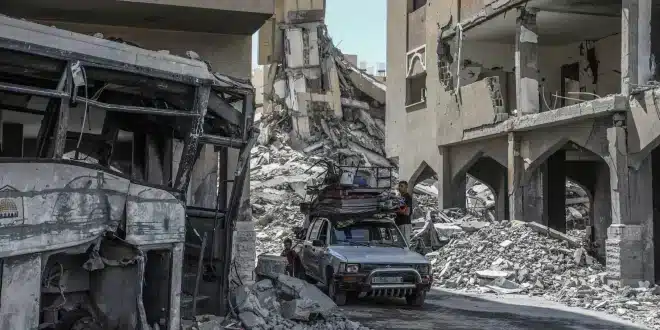Efforts to reach a truce and hostage release agreement between Israel and Hamas have encountered multiple challenges, but recent negotiations have sparked hope for a resolution.
U.S. Secretary of State Antony Blinken expressed optimism about achieving a ceasefire in Gaza, following a “cautious optimism” statement from Washington about an “imminent deal.” These hopes arise from reported indirect negotiations in Qatar, facilitated by Qatar, Egypt, and the United States.
Diplomatic sources indicate that U.S. President-elect Donald Trump’s recent assertion for a deal before his January 20 inauguration has influenced the negotiations. Hamas, feeling isolated due to the weakening of its Lebanese ally Hezbollah and the fall of Syrian leader Bashar al-Assad, is eager to secure an agreement by year-end. This sentiment is echoed by the hope of many who view a deal as a “perfect Christmas gift.”
The death of Hamas chief Yahya Sinwar has shifted negotiation responsibilities to Hamas leaders abroad, known for their pragmatic approach. According to a high-ranking Hamas official, talks have reached the “final details” stage, with an announcement expected from Qatar and Egypt once negotiations conclude.
An Israeli government spokesman refrained from commenting on the proposed deal, suggesting that keeping details under wraps is beneficial.
The proposed deal involves a ceasefire and a phased release of hostages. Initially, Israeli civilian hostages and female soldiers would be released in exchange for numerous Palestinian prisoners. Israel would also partially withdraw its forces from specific areas in Gaza, allowing displaced residents to return under Israeli army monitoring. Subsequent phases would involve the release of Israeli male soldiers, the complete withdrawal of Israeli forces from most areas, and the start of reconstruction efforts in Gaza. The Rafah crossing on the Egyptian border would be jointly managed by the Palestinian Authority, Egypt, and the European Union.
Despite the progress, significant obstacles remain. Prime Minister Benjamin Netanyahu has consistently opposed withdrawing Israeli troops from the Philadelphi Corridor, and Israel has stated it will not allow Hamas to govern Gaza post-war. Additionally, the governance of Gaza remains a contentious issue within the Palestinian leadership. While a Hamas official mentioned that international entities would guarantee the agreement’s implementation, there has been no confirmation from these parties.


